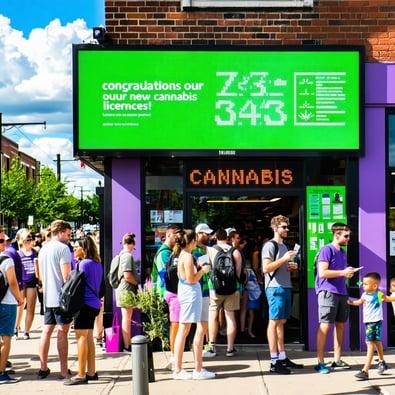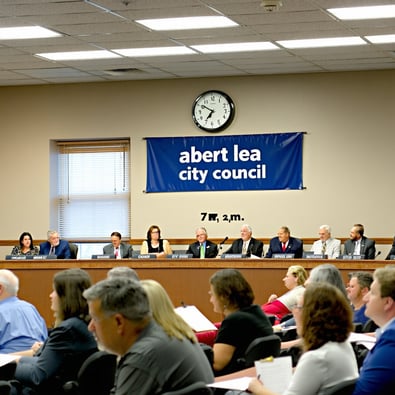Licensed Minnesota Cannabis Entrepreneurs Face Real Estate Hurdles
After more than 20 rejections from landlords, Army veteran Brian Bartley began to question whether Minnesota’s new cannabis industry was truly open for business. The 57-year-old entrepreneur is one of the many hopefuls in the Licensed Minnesota cannabis program, trying to turn his dream into reality with his social-equity microbusiness, Green Lane Express.
Bartley received his preliminary license in April, which started the countdown — an 18-month window to open his dispensary under the Licensed Minnesota program. “I have to pour my life savings into this,” Bartley said. “My retirement is going into this.” But despite his determination, the biggest obstacle hasn’t been finding customers or suppliers — it’s been finding a landlord willing to take a chance.
Every time Bartley mentioned cannabis during lease negotiations, potential deals fell apart. His experience highlights a growing concern among Licensed Minnesota entrepreneurs: the lack of accessible, compliant real estate. Although Minnesota legalized cannabis sales, the federal government still classifies marijuana as illegal. That means national banks can’t easily work with cannabis operators, and property owners fear legal or financial repercussions for leasing to them.
Experts say this is one of the most significant barriers for Licensed Minnesota business owners, especially small, independent operators. “A lot of landlords are afraid to touch the cannabis industry,” said Mackenzie Damerow, a senior associate industrial broker at Hoyt Properties who represents cannabis clients. Damerow explained that the uncertainty surrounding federal law and insurance coverage leaves property owners hesitant — even as the Licensed Minnesota market gains momentum.
The situation is especially challenging for social equity applicants like Bartley, who received their Licensed Minnesota permits as part of the state’s effort to ensure diverse participation in the industry.
Despite these challenges, optimism remains. As more Licensed Minnesota businesses prepare to open, advocates are pushing for stronger state-level protections for landlords and expanded financing options for cannabis entrepreneurs. Local municipalities are also considering policies to make zoning more flexible, helping reduce roadblocks for applicants who have already proven their commitment to the Licensed Minnesota program.
For Bartley and others like him, the journey is far from over. “I’m doing everything by the book,” he said. “I just need a fair shot.” His story represents both the promise and growing pains of the Licensed Minnesota cannabis market — one defined by persistence, resilience, and hope for a more accessible future.





